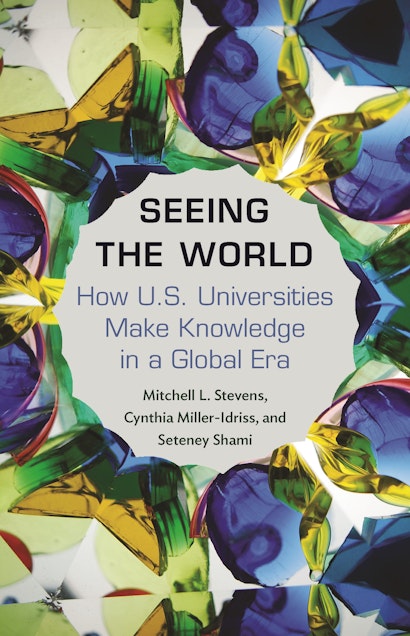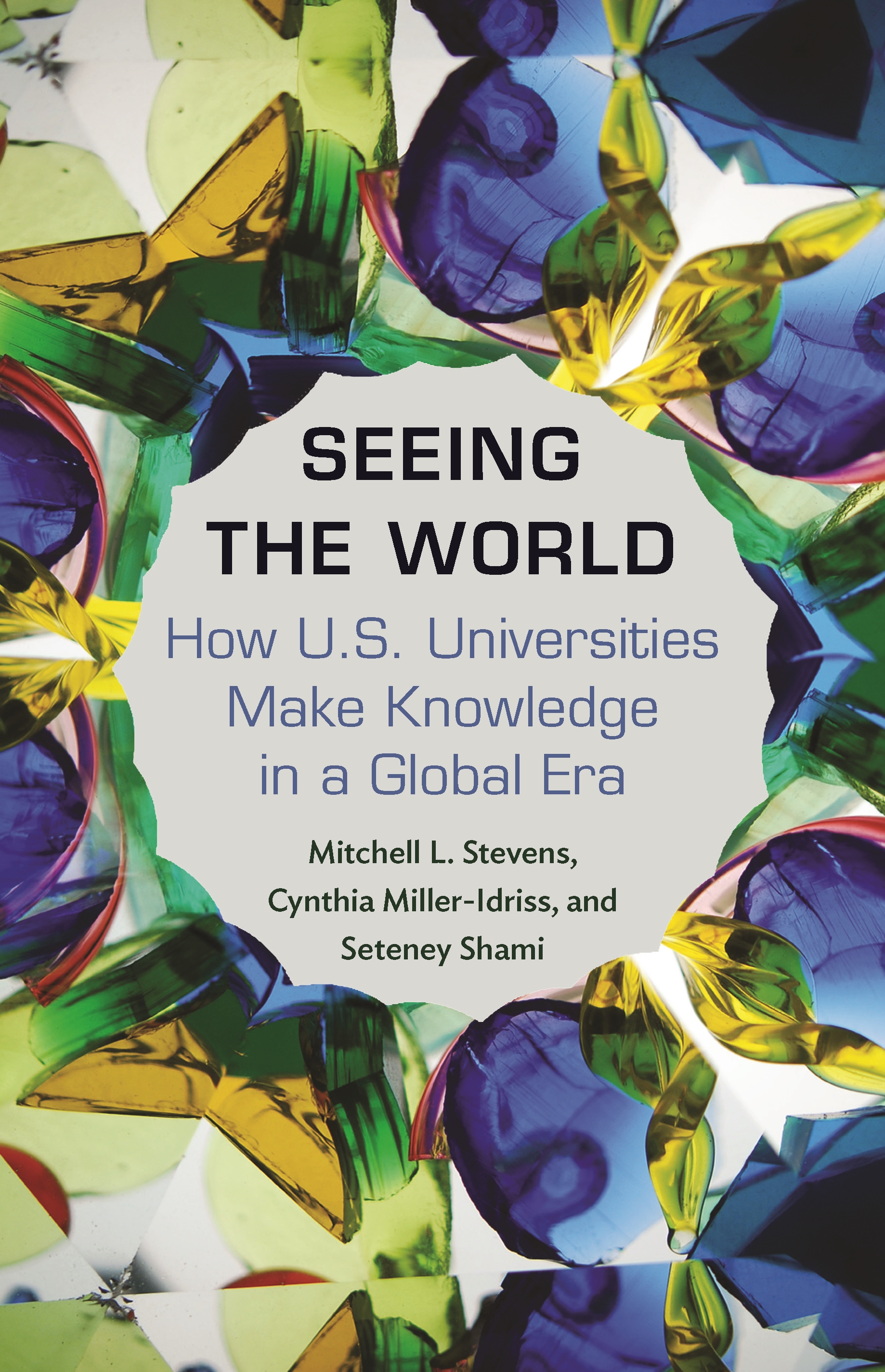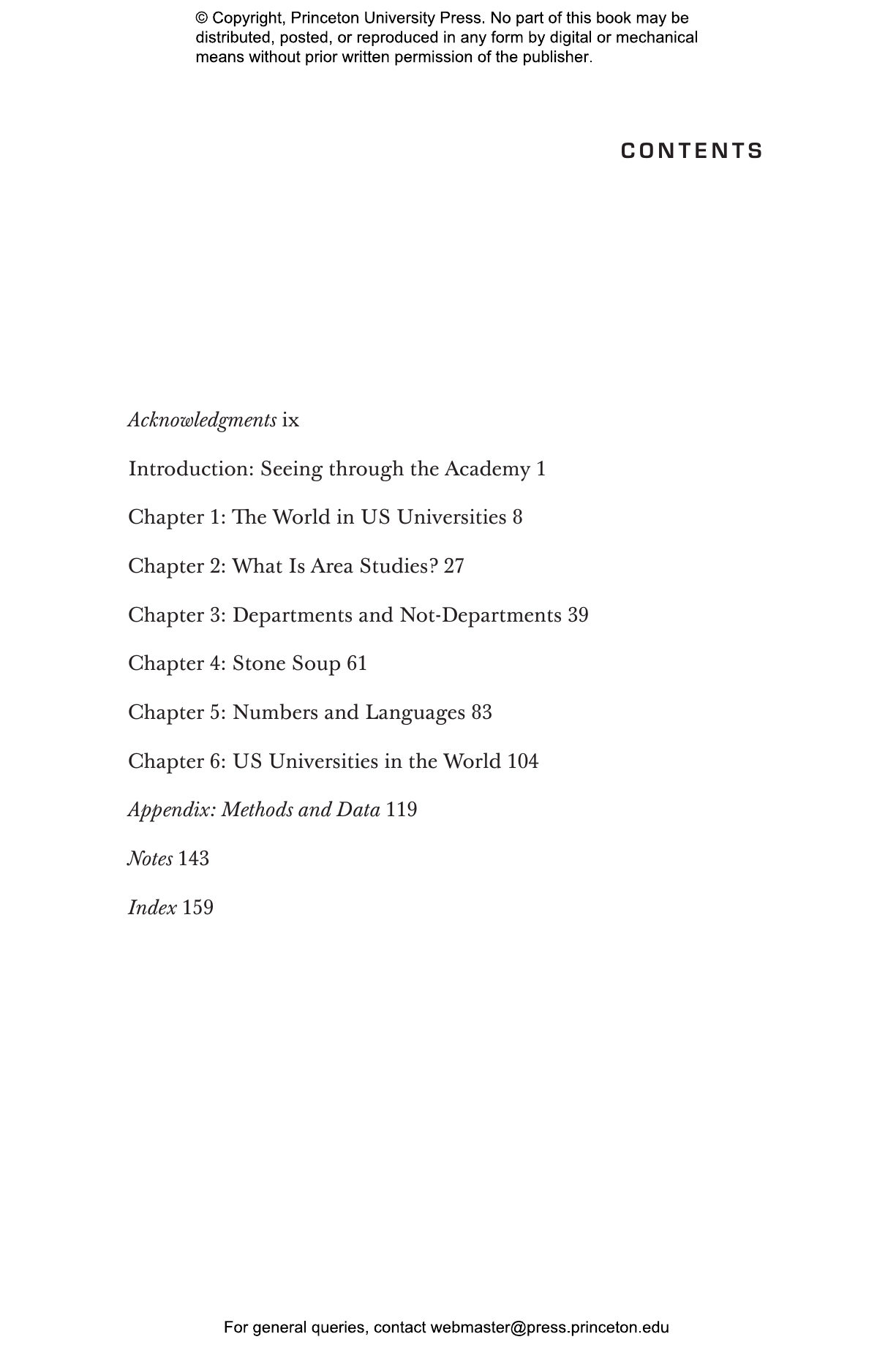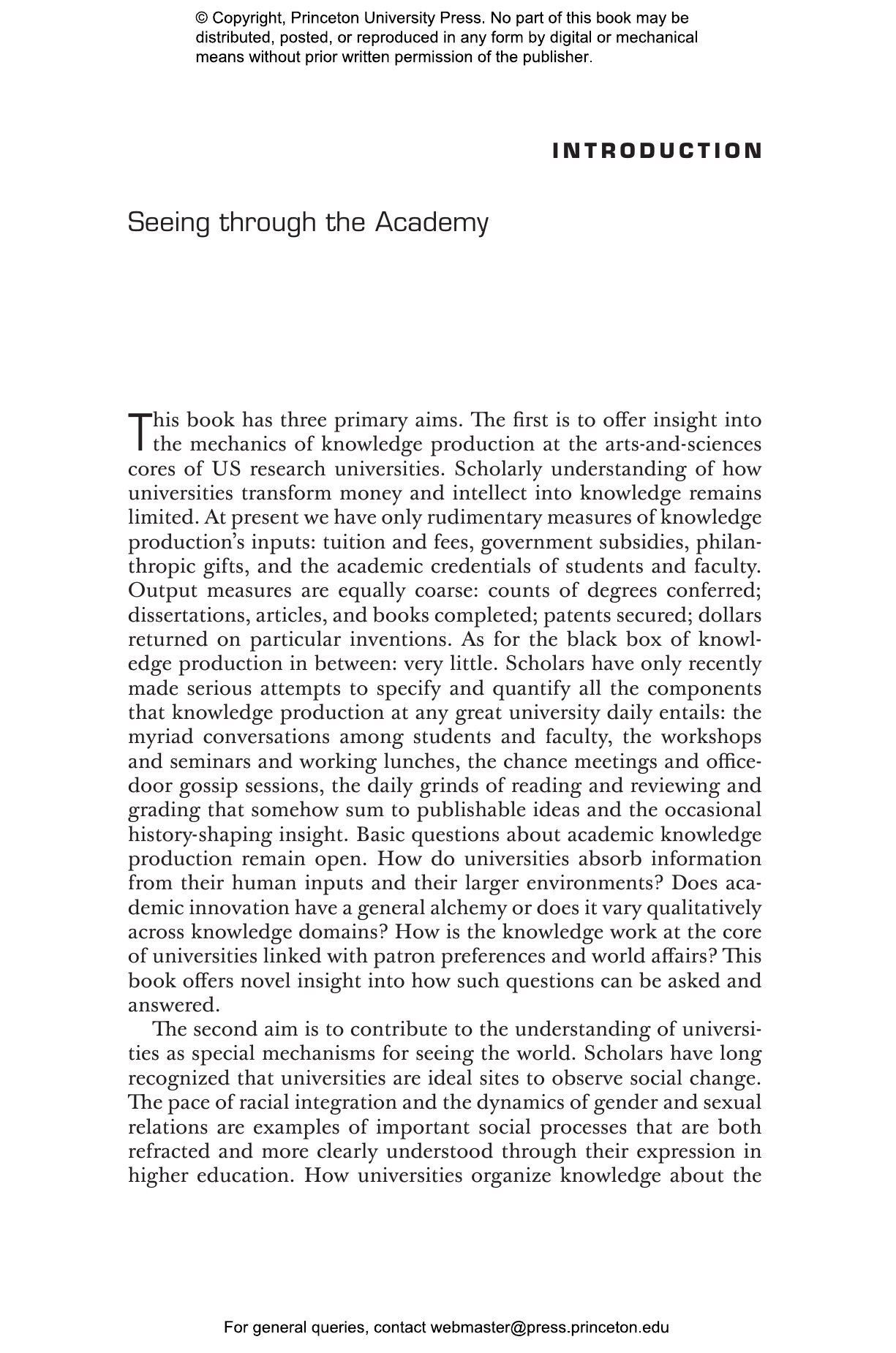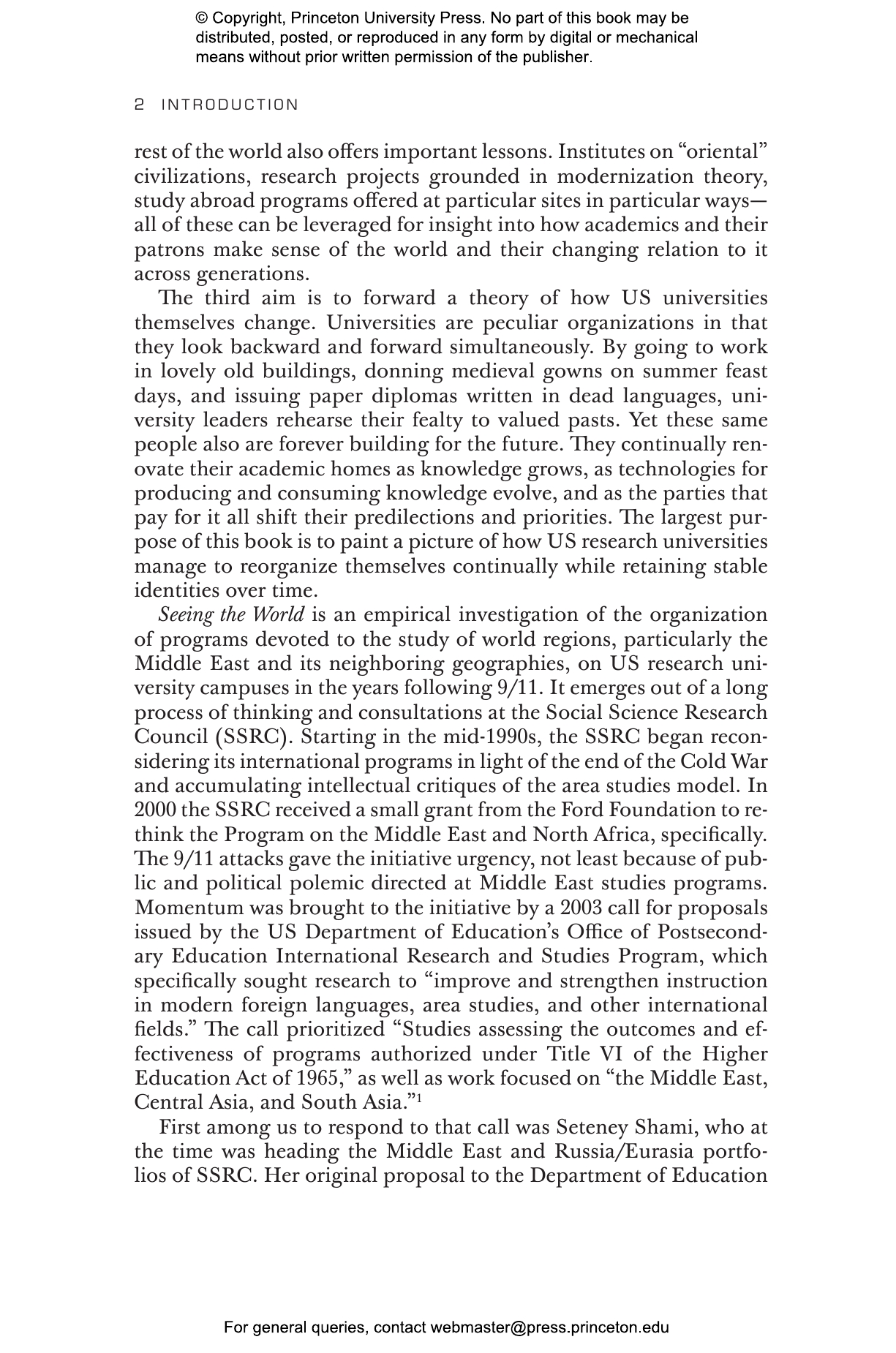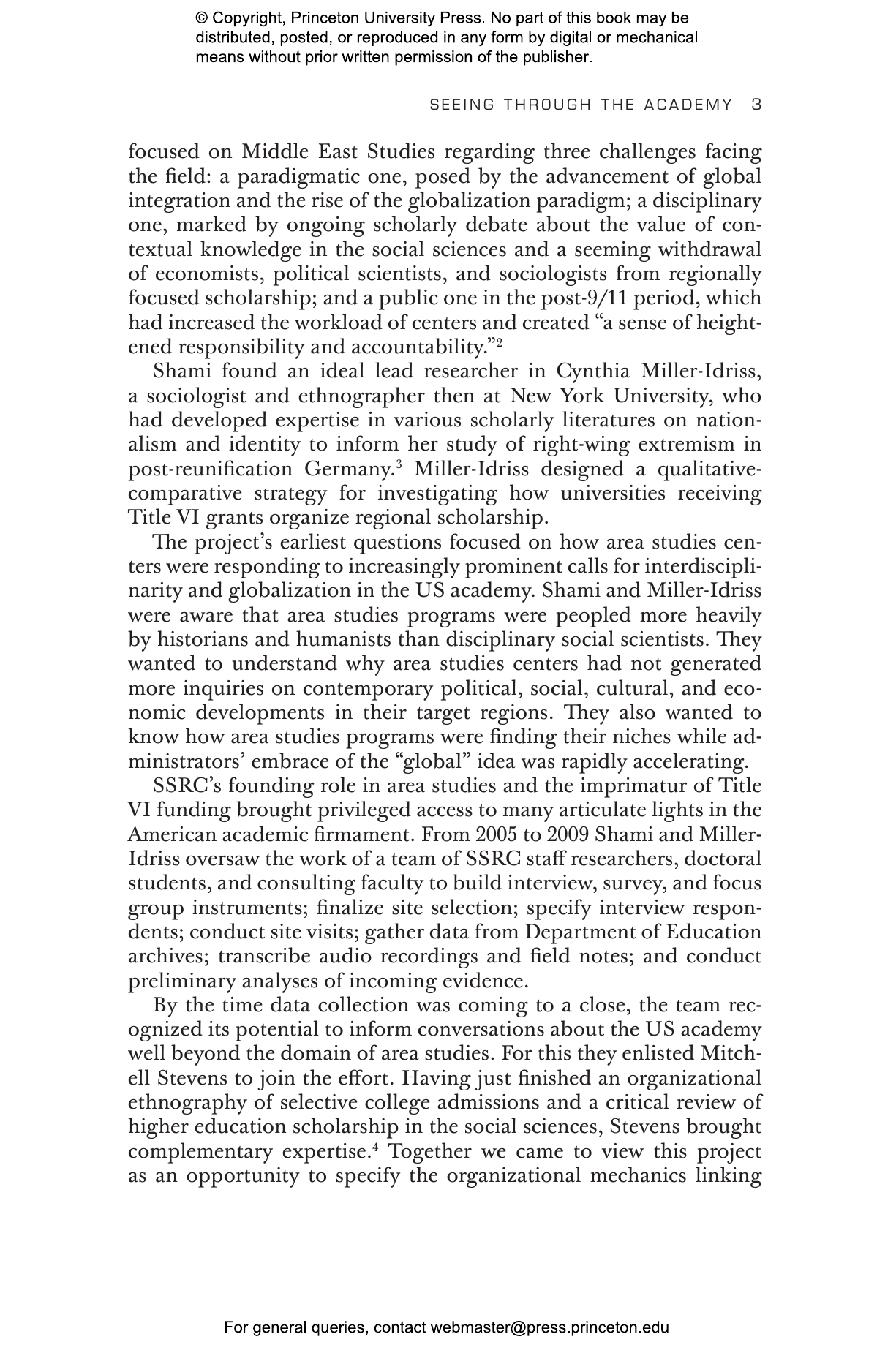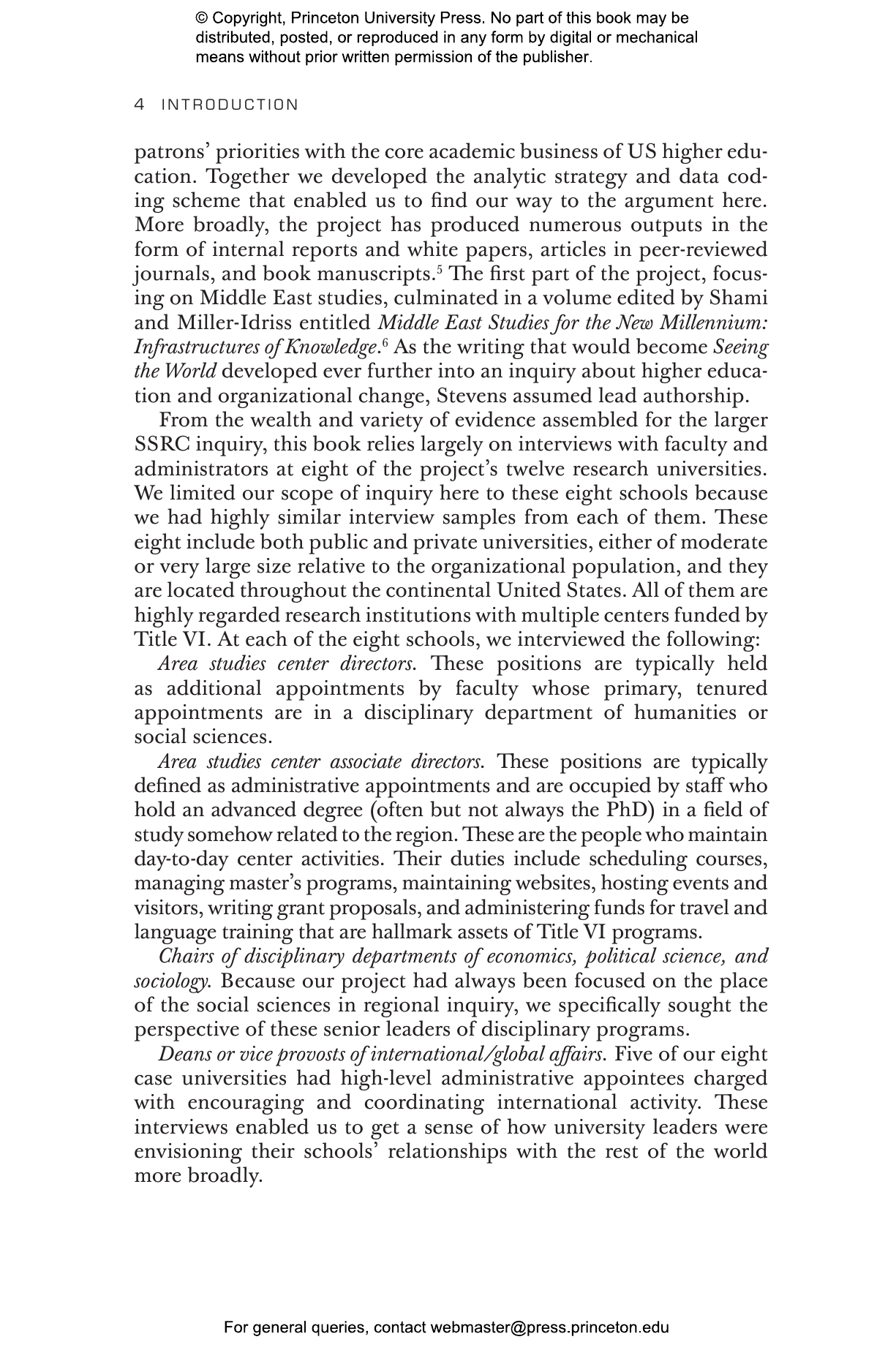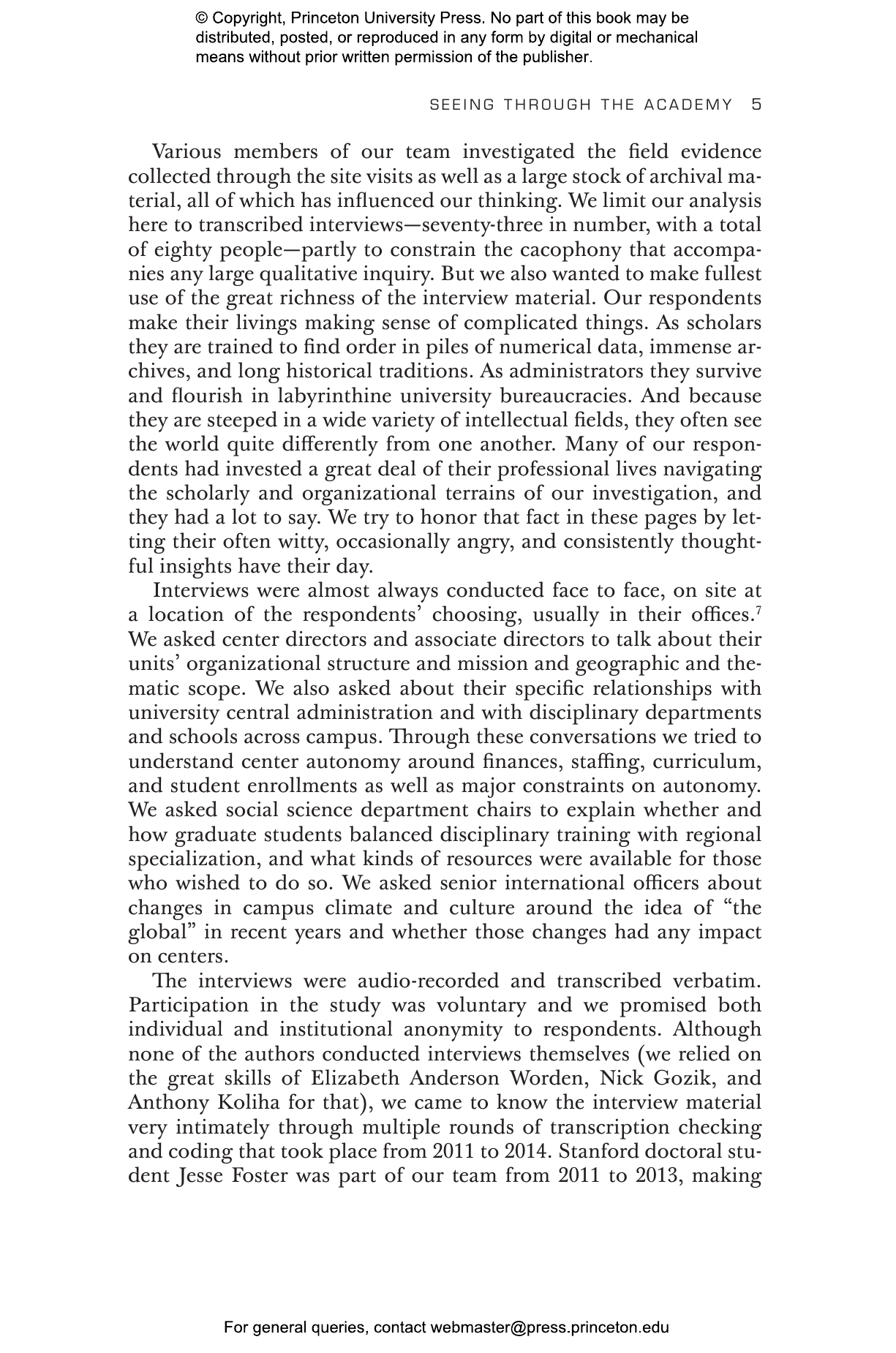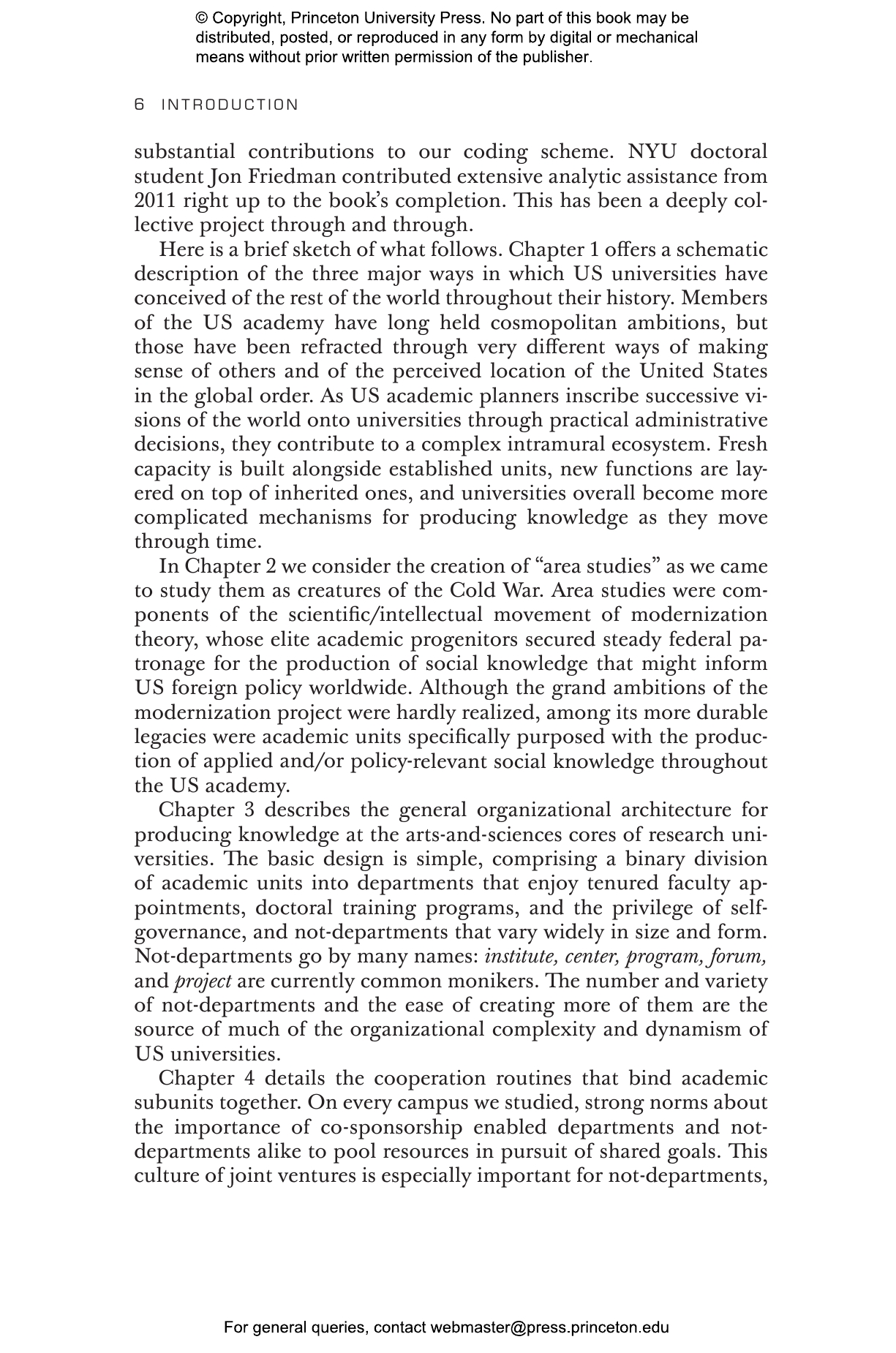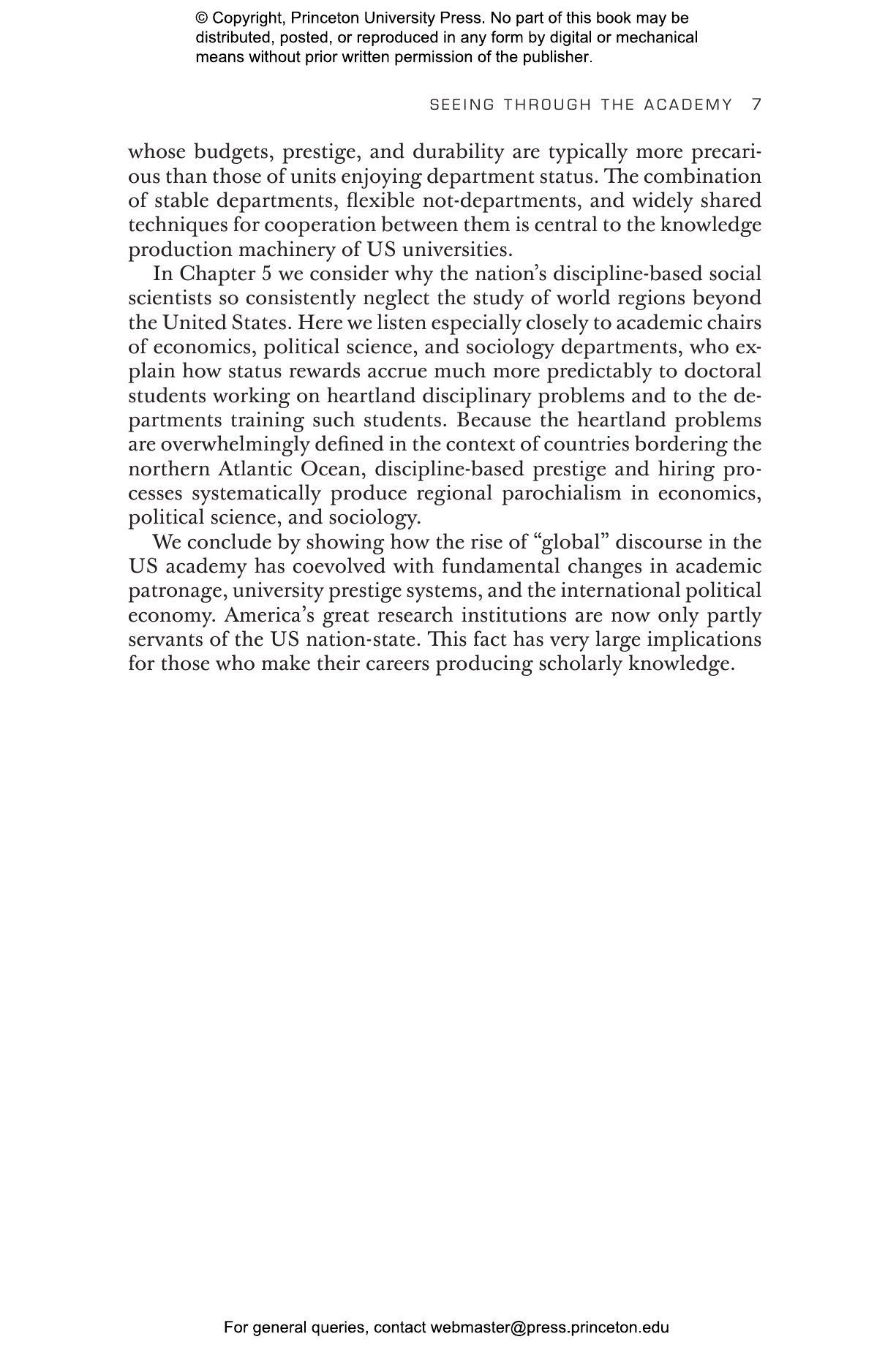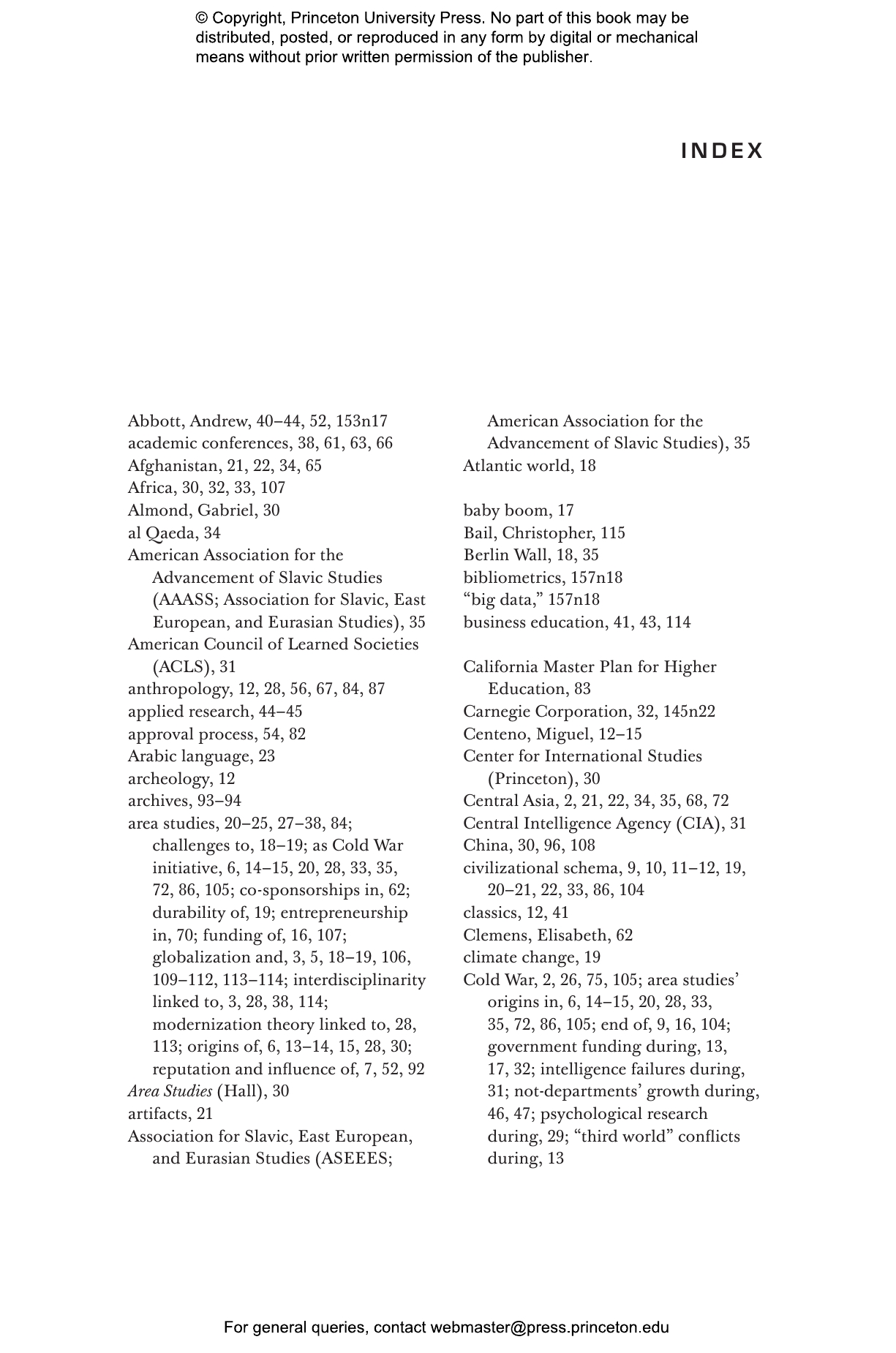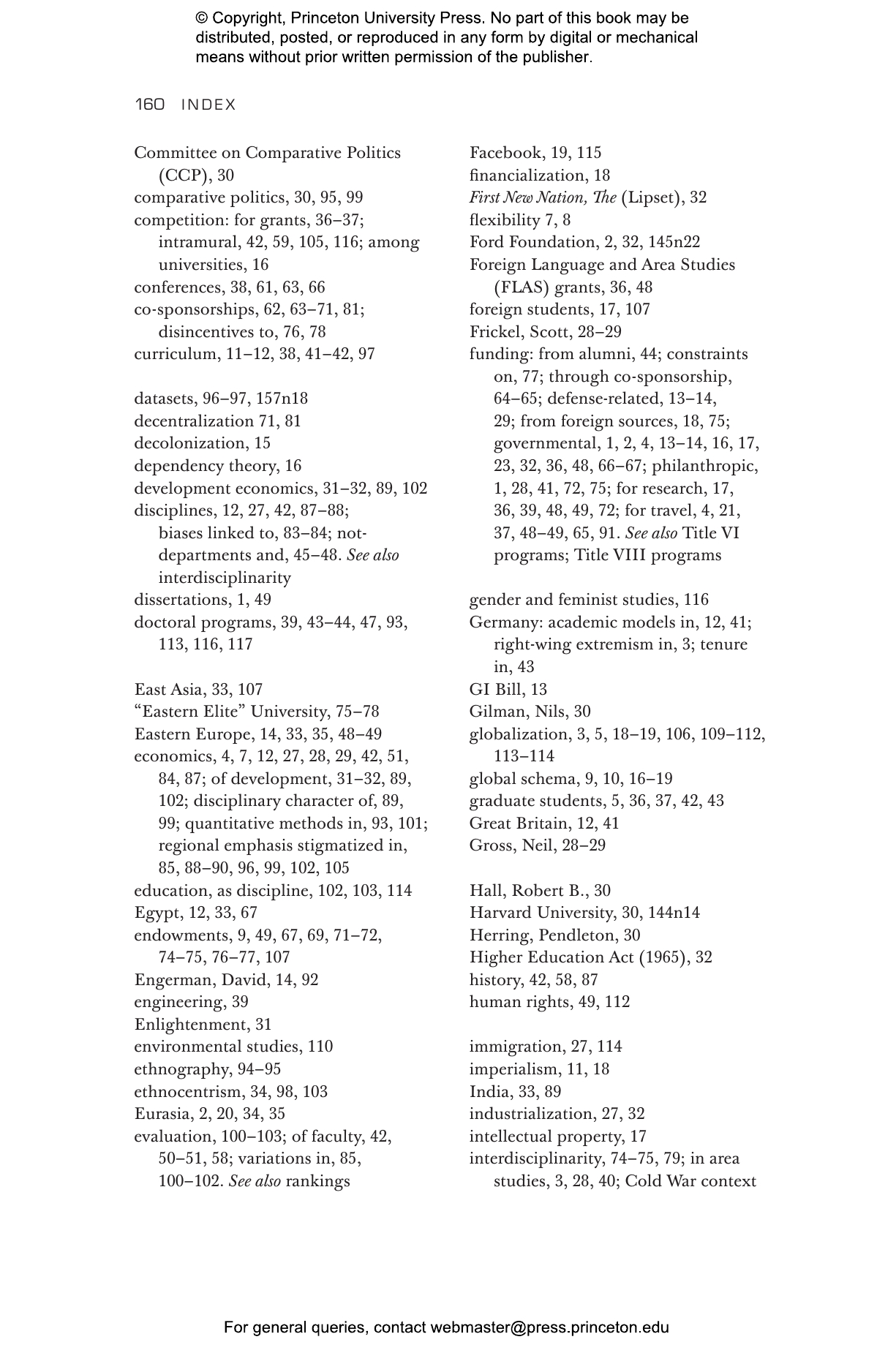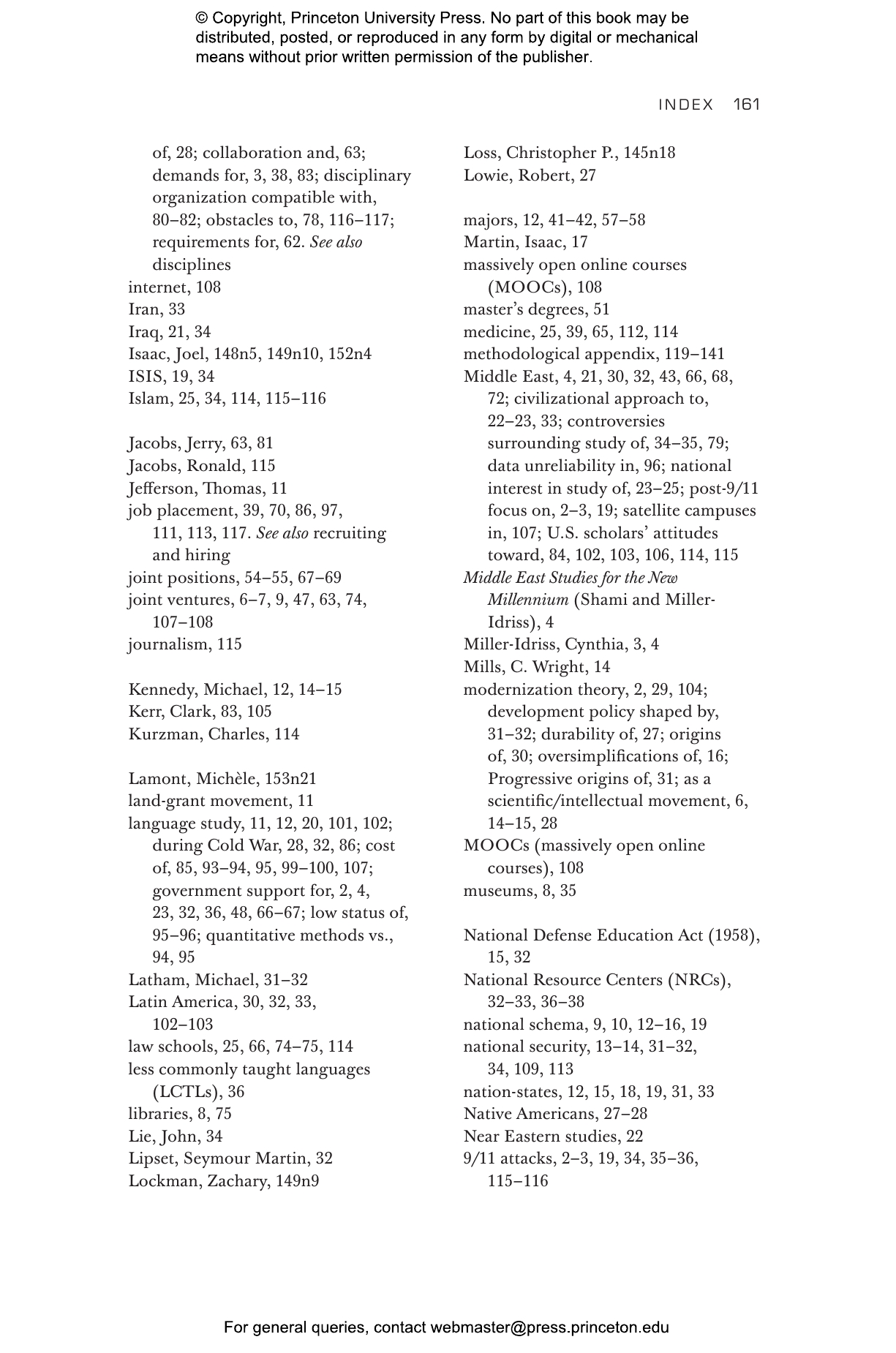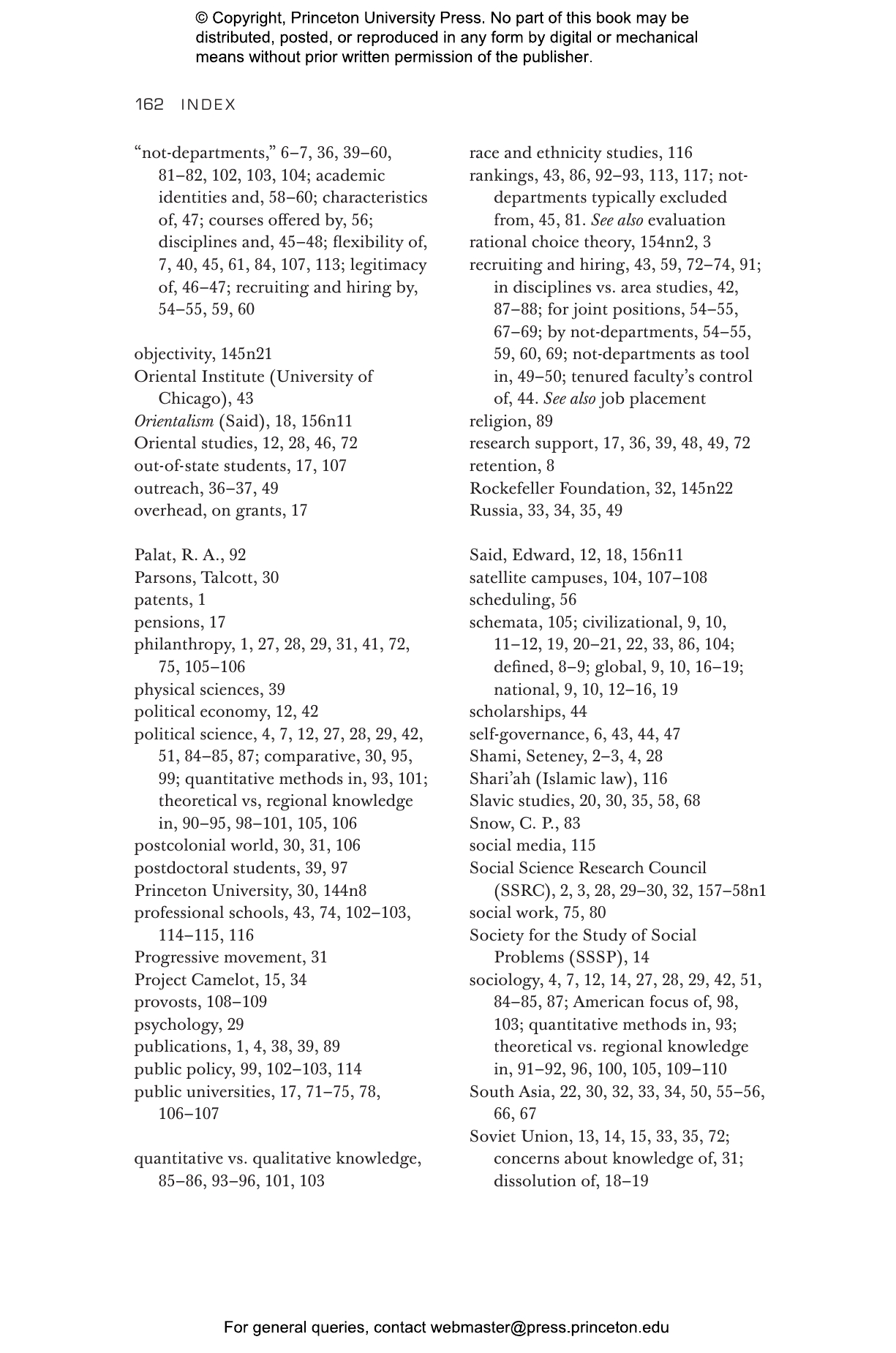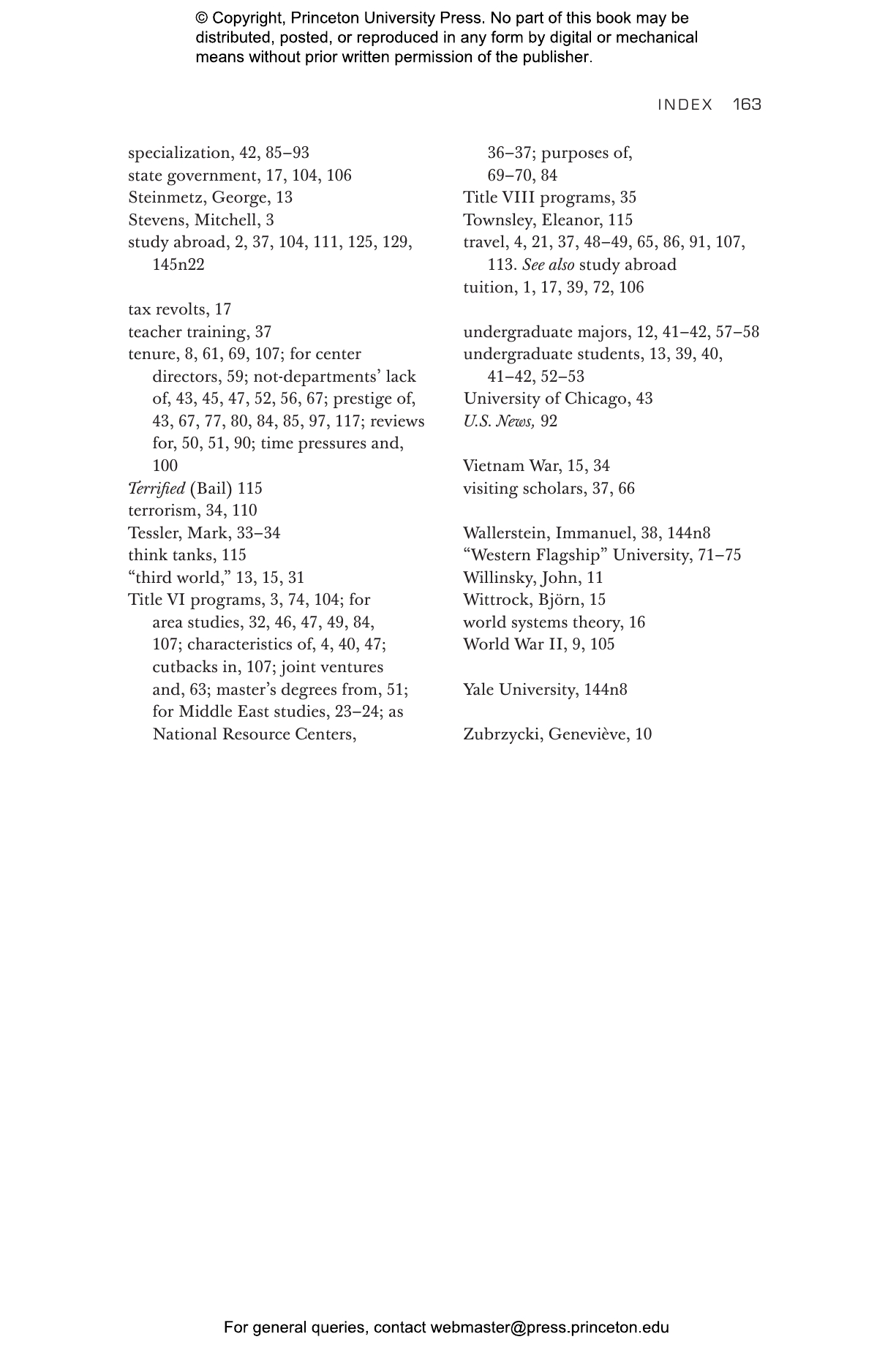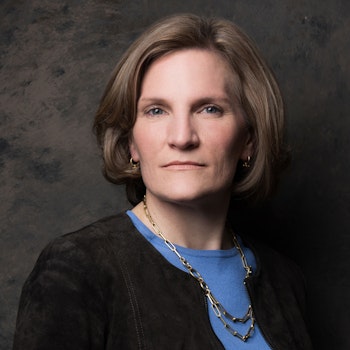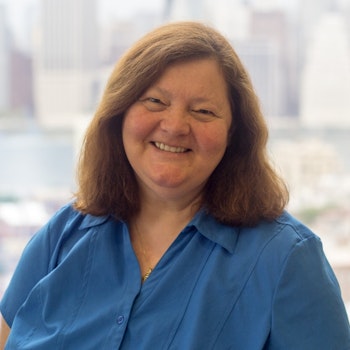U.S. research universities have long endeavored to be cosmopolitan places, yet the disciplines of economics, political science, and sociology have remained stubbornly parochial. Despite decades of government and philanthropic investment in international scholarship, the most prestigious academic departments still favor research and expertise on the United States. Why? Seeing the World answers this question by examining university research centers that focus on the Middle East and related regional area studies.
Drawing on candid interviews with scores of top scholars and university leaders to understand how international inquiry is perceived and valued inside the academy, Seeing the World explains how intense competition for tenure-line appointments encourages faculty to pursue “American” projects that are most likely to garner professional advancement. At the same time, constrained by tight budgets at home, university leaders eagerly court patrons and clients worldwide but have a hard time getting departmental faculty to join the program. Together these dynamics shape how scholarship about the rest of the world evolves.
At once a work-and-occupations study of scholarly disciplines, an essay on the formal organization of knowledge, and an inquiry into the fate of area studies, Seeing the World is a must-read for anyone who cares about the future of knowledge in a global era.
Mitchell L. Stevens is associate professor of education at Stanford University. Cynthia Miller-Idriss is associate professor of education and sociology at American University. Seteney Shami is a program director at the Social Science Research Council and founding director of the Arab Council for the Social Sciences.
"Written with verve, this short book does a good job of contextualizing area studies within a historical sociology of the vicissitudes of academic life."—Mary Taylor Huber, Change: The Magazine of Higher Learning
"[Seeing the World] offers a novel perspective to understand the historical and contemporary role of US research universities in shaping and reshaping American and global societies. . . . A must-read book for anyone working or studying within the US higher education system. It will help current students, scholars, and administrators better understand their role within the American university’s knowledge-producing system.—Lipon Mondal, International Journal of Comparative Sociology"
"Seeing the World addresses an interesting and weighty question: Why are the social sciences so poorly represented in area studies? The authors and their collaborators conducted and analyzed a treasure trove of interviews with leading academics in area studies, particularly Middle East studies, and the book provides both empirical and theoretical advances."—Jerry A. Jacobs, University of Pennsylvania
"This is a vital book. The debate about the role of universities in global understanding starts here. This short book is full of insights about how the world has shaped American universities and how universities have shaped what we think about the world."—Jeremy Adelman, Princeton University
"With extensive interviews and other data, Seeing the World explains critical variations in understanding area studies and the mechanisms that enable their interdisciplinary reproduction in leading US universities. This book should not only clarify thinking about the international missions of US universities, but also improve how their globalizing knowledge networks function in practice."—Michael D. Kennedy, Brown University
"Seeing the World combines impressive ambition and empirical depth with a powerful comparative approach to make a significant contribution to our understanding of area studies."—Jason Owen-Smith, University of Michigan
